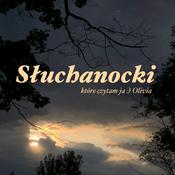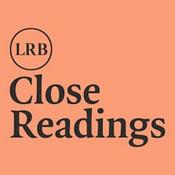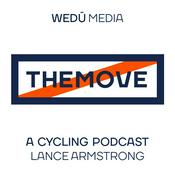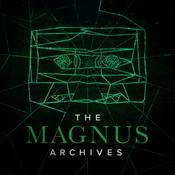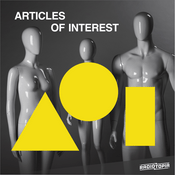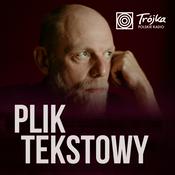Dostępne odcinki
5 z 259
- Co-Intelligence & Planetary Perspectives with Rimma Boshernitsan of DIALOGUEMembership | Donations | Spotify | YouTube | Apple Podcasts | Discord | FB GroupThis week (actually, April) I speak with Rimma Boshernitsan (Website | LinkedIn), a speaker, interviewer, facilitator, and advisor who has partnered with senior leadership at Fortune 500 companies—including Google, Kaiser Permanente, Roche, TATA, and Aesop—guiding them through transformation and growth. Her writing has appeared in Fast Company, Inc. Magazine, Tech Crunch and Forbes.She began her career in management consulting at Deloitte, focusing on M&A and large-scale transformation, before moving into industry advising across healthcare, consumer business, and telecommunications. Later work in the art world taught her how cultural and political insights could drive innovation and transformation in business, leading her to found DIALOGUE in 2016.She now combines strategic foresight, human-centered innovation, and interdisciplinary thinking to help her clients reframe challenges, identify opportunities, and lead with intention. She sits on the board of trustees at Headlands Center for the Arts and on the SECA Council Board at SFMOMA, and is also an advisor to Stanford’s Women in Design Program.Her most recent focus is in co-intelligence: integrating human, machine, and planetary intelligence to build future-facing organizations.I’m glad to have such an excellent partner in conversation to, as the Taoists say, “Feel our way across the river stone by stone” in a discussion about all of this and more: the re-emergence of nomadic populations and intentional communities, fumbling toward an idea of planetary culture, the role of intuition in leadership and biophilia in the design of our work spaces...it’s a marvelously nondisciplinary co-exploration.There are well over a dozen episodes in the editing queue and founding members can access the entire trove of unedited conversations before they’re released:✨ Show Links• Dig into nine years of mind-expanding conversations• Learn more about the Humans On The Loop project and its goals• Browse the books we discuss on the show at Bookshop.org• Contact me if you have a problem you think I can help you solve• Explore the interactive knowledge graph grown from over 250 episodes• Explore the Google Notebook for How To Live In The Future, my five-week science and philosophy course at Weirdosphere✨ Mentioned Media & PeopleIn Threads’ dwindling engagement, social media’s flawed hypothesis is laid bareIn a Time of Stress, Neuroaesthetic Spaces and Places Create a Path to Healing and HopeThe Triad of Intelligences: Harnessing Machine, Planetary, and Human Intuition in The Age of AIDIALOGUE Interviews: Ivy RossDIALOGUE Interviews: Susan MagsamenDIALOGUE Interviews: Kevin KellyMore Is Different: Broken symmetry and the nature of the hierarchical structure of scienceNikki SilvaBruce LiptonEd BernaysKen Wilber This is a public episode. If you'd like to discuss this with other subscribers or get access to bonus episodes, visit michaelgarfield.substack.com/subscribe--------1:05:46
- Co-Evolving with Magical Technologies feat. Sam ArbesmanMembership | Donations | Spotify | YouTube | Apple Podcasts✨ About This EpisodeThis week I talk to Sam Arbesman, scientist-in-residence at Lux Capital, Research Fellow at the Long Now Foundation, and host of The Orthogonal Bet, weaving together and plucking at the ideas in his delightful new book, The Magic of Code: How Digital Language Created and Connected Our World…and Shapes Our Future. Sam is a brilliant scholar, a maverick mind, and a good friend—so even though we don’t see perfectly eye-to-eye about just where the analogy of code as magic works and where it falls apart, that tiny bit of friction makes for a fascinating joint exploration into the liminal zones where our categories fray and their distinctions are constantly rewritten.In this episode, we discuss:• Sam’s origin story as a code-lover (00:10:20)• Code as “algebra and fire” (00:14:17)• If code is magic, what is magic? (00:20:10)• Open-source development and open-ended innovation (00:25:48)• Rethinking the nature of “failure” in the so-called Technocene (00:32:12)• Navigating simplicity and complexity (00:38:44)• Acceptable and unacceptable sacrifices to the incomprehensibility of our technologies (00:45:02)• The squishy overlap between tech and biology (00:54:03)• The co-domestication of software bugs and people (01:03:22)• And the emerging age of ephemerality (01:15:55)It was, as it always is with Sam, a joy. I hope you get as much out of it as we did.This Saturday at 10 am PDT is the return of our monthly members hangouts. Join us!✨ Show Links• Dig into nine years of mind-expanding conversations• Learn more about the Humans On The Loop project and its goals• Browse the books we discuss on the show at Bookshop.org• Contact me if you have a problem you think I can help you solve• Explore the interactive knowledge graph grown from over 250 episodes• Explore the Google Notebook for How To Live In The Future, my five-week science and philosophy course at Weirdosphere✨ Mentioned Reading & PeopleSteven Johnson - Everything Bad Is Good For YouWilliam Alonso - “Predicting Best with Imperfect Data”Danny Hillis - “The Enlightenment Is Dead, Long Live The Entanglement”Moses Maimonides - The Guide To The PerplexedRichard Brautigan - “All Watched Over by Machines of Loving Grace”Stewart Brand - The Clock of The Long NowLawrence Lundy-BryanClive ThompsonKevin KellyJose Luis BorgesLionel Snell (Ramsey Dukes)Nadia AsparouhovaUrsula K LeGuinWilliam GibsonDavid KrakauerMichael LevinChris LangtonJim LovelockLynn MargulisAlan MooreJessica FlackMonica AndersonJeremy UtleyAlan PerlisSteve Jobs✨ Mentioned Episodes This is a public episode. If you'd like to discuss this with other subscribers or get access to bonus episodes, visit michaelgarfield.substack.com/subscribe--------1:24:22
- Holistic Technology for Growing a World in Love with Larry MuhlsteinMembership | Donations | Spotify | YouTube | Apple PodcastsThis week we hear from Larry Muhlstein, who worked on Responsible AI at Google and DeepMind before leaving to found the Holistic Technology Project. In Larry’s words:“Care is crafted from understanding, respect, and will. Once care is deep enough and in a generative reciprocal relationship, it gives rise to self-expanding love. My work focuses on creating such systems of care by constructing a holistic sociotechnical tree with roots of philosophical orientation, a trunk of theoretical structure, and technological leaves and fruit that offer nourishment and support to all parts of our world. I believe that we can grow love through technologies of togetherness that help us to understand, respect, and care for each other. I am committed to supporting the responsible development of such technologies so that we can move through these trying times towards a world where we are all well together.”In this episode, Larry and I explore the “roots of philosophical orientation” and “trunk of theoretical structure” as he lays them out in his Technological Love knowledge garden, asking how technologies for reality, perspectives, and karma can help us grow a world in love. What is just enough abstraction? When is autonomy desirable and when is it a false god? What do property and selfhood look like in a future where the ground truths of our interbeing shape design and governance?It’s a long, deep conversation on fundamentals we need to reckon with if we are to live in futures we actually want. I hope you enjoy it as much as we did.Our next dialogue is with Sam Arbesman, resident researcher at Lux Capital and author of The Magic of Code. We’ll interrogate the distinctions between software and spellcraft, explore the unique blessings and challenges of a world defined by advanced computing, and probe the good, bad, and ugly of futures that move at the speed of thought…✨ Show Links• Hire me for speaking or consulting• Explore the interactive knowledge garden grown from over 250 episodes• Explore the Humans On The Loop dialogue and essay archives• Browse the books we discuss on the show at Bookshop.org• Dig into nine years of mind-expanding podcasts✨ Additional Resources“Growing A World In Love” — Larry Muhlstein at Hurry Up, We’re Dreaming“The Future Is Both True & False” — Michael Garfield on Medium“Sacred Data” — Michael Garfield at Hurry Up, We’re Dreaming“The Right To Destroy” — Lior Strahilevitz at Chicago Unbound“Decentralized Society: Finding Web3’s Soul” — Puja Ohlhaver, E. Glen Weyl, and Vitalik Buterin at SSRN✨ MentionsKarl Schroeder’s “Degrees of Freedom”Joshua DiCaglio’s Scale TheoryGeoffrey West’s ScaleHannah ArendtKen WilberDoug Rushkoff’s Survival of the RichestManda Scott’s Any Human Power Torey HaydenChaim Gingold’s Building SimCityJames P. Carse’s Finite & Infinite GamesJohn C. Wright’s The Golden OecumeneEckhart Tolle’s The Power of Now✨ Related Episodes This is a public episode. If you'd like to discuss this with other subscribers or get access to bonus episodes, visit michaelgarfield.substack.com/subscribe--------2:14:55
- Taryn Southern on Surfing the Exponential Tech TsunamiMembership | Donations | Spotify | YouTube | Apple PodcastsToday’s guest Taryn Southern is someone I consider a master surfer of technological change: a fellow elder millennial, artist, creative technologist, strategist, and dancer in the liminal zones of high chop. She’s better than I am at finding the pocket, has made a name for herself for riding some serious bombs, and seems to know precisely when to bail. Starting as an actor, Internet famous for being an early YouTube influencer and her album I Am AI, the first LP composed and produced with an LLM, she caught air at the Tribeca Film Festival in 2019 with the premier of her documentary I Am Human (co-directed with Elena Gaby), an intimate look at the lives of three people with implantable brain interfaces and the medical, ethical and societal implications.She’s also produced an award-winning musical VR series for Google using Tiltbrush and Blocks, worked as Chief Storyteller for Blackrock Neurotech, minted the first song token on the Ethereum blockchain, spoken and consulted all over the world, operated as an angel investor, and survived breast cancer. In other words, she’s just the person to teach you how to hang ten instead of duck diving under the next pounder. Let’s drop in and grab the rail. Thanks for listening!If you enjoy this conversation, join the Wisdom x Technology Discord server and consider becoming a member for access to the complete archives, study groups, and community calls.Founding members also get access to the entire twenty hours of lecture and discussion from my recent course, How to Live in the Future at Weirdosphere.Show Links• Explore the interactive knowledge garden grown from over 250 episodes• Dig into nine years of mind-expanding podcasts• Explore the Humans On The Loop dialogue and essay archives• Browse the books we discuss on the show at Bookshop.org• Hire me for speaking or consultingChapters00:00 Introduction: The Promise and Perils of Technology 01:07 Welcome to Humans On the Loop 05:57 Taryn's Early Fascination with Technology 08:55 Living with Constraints and The Spirit of Exploration 31:06 AI in Personal Growth and Communication 38:52 AI as a New Religion and Therapy Tool 42:04 The Ethical Dilemmas of AI and Big Tech 47:58 The Future of AI in Governance and Society 57:42 Empowering Individuals with AI and Community InvolvementMentionsMoon RibasRolf Potts’ VagabondingDamien Walter’s “Modernity is Done”Jim O’ShaughnessySolo: A Star Wars StoryMichael Davis on Exploring the Intersection of AI & RomanceThe Evolution of SurveillanceCory Doctorow’s “enshittification”Howard Rheingold This is a public episode. If you'd like to discuss this with other subscribers or get access to bonus episodes, visit michaelgarfield.substack.com/subscribe--------1:13:02
- Chaim Gingold on Building SimCity & Simulation as DiscourseMembership | Donations | Spotify | YouTube | Apple PodcastsWe live in simulated worlds of our own making, detecting patterns in the chaos and complexity of raw experience and boiling them down into operable categories and generalizations. Sometimes we do this well, and sometimes…This week’s guest, computer scientist and game designer Chaim Gingold, wrote what I consider the best book available on the history and sociality of simulations: Building SimCity: How to Put the World in a Machine (MIT Press) takes readers from the prehistory of modern computing through the post-war development of cybernetics and systems thinking and into the entangled relationship of video games, military info-tech, civil engineering, software-based education, and complexity science that forms today’s “invisible environment.” Sim City is more than a legendary video game. It is case study in how the digital revolution reshaped the ways we think, teach, design, and govern…and how what simulation as a mode of discourse can hide and reveal, oppress and empower us. In this dialogue we explore the the tensions between games and play, the analog and digital, abstraction and tactility, and mysticism and colonialism in simulation-induced experiences. We investigate the rise and fall of Sim City game developer MAXIS, weave threads through the history of computing and software development, systems science, and the philosophy of technology, and ask:What makes some abstractions better than others?If you enjoy this conversation, join the Wisdom x Technology Discord server and consider becoming a member for access to the complete archives, study groups, and community calls.Founding members also get access to the entire twenty hours of lecture and discussion from my recent course, How to Live in the Future at Weirdosphere.Show Links• Explore the interactive knowledge garden grown from over 250 episodes• Dig into nine years of mind-expanding podcasts• Explore the Humans On The Loop dialogue and essay archives• Browse the books we discuss on the show at Bookshop.org• Hire me for speaking or consultingMentionsWill WrightJohn Conway’s Game of LifeVannevar BushAlan Kay & Xerox PARCEd Catmull - Creativity, Inc.James Clerk MaxwellEthan MollickBrian Sutton-SmithGottfried LiebnizLarry OwensJay ForresterLauren F. KleinEdgar MitchellRusty SchweickertJulian of NorwichChris LangtonKen ForbisMark ZuckerbergElon MuskSam AltmanSam Arbesman - The Magic of CodeTimothy MortonDonna HarawayNick BostromJoshua DiCaglio - Scale TheoryStanislaw Lem - The CyberiadKevin Kelly - Out of ControlStewart Brand & The Whole Earth CatalogFred Turner - From Counterculture to CybercultureDe Kai - Raising AIAnd in case you missed it: This is a public episode. If you'd like to discuss this with other subscribers or get access to bonus episodes, visit michaelgarfield.substack.com/subscribe--------1:26:31
Więcej Sztuka podcastów
Trendy w podcaście Sztuka
O Humans On The Loop
Let's dream better! Join paleontologist-futurist Michael Garfield for bold, far-ranging explorations into the nature of agency in the age of automation, wisdom and innovation, responsibility and power, and the care and feeding of the new superpowers conferred to us by magical technologies. Weekly dialogues at the edge of the knowable, learning to navigate Global Weirding and exponential AI with the curiosity and play required of us. Building on twenty years of independent research plus firsthand experience of the tech, arts, and science worlds, Humans On The Loop is a show to transform you and help us make better use of our greatest natural resource: our attention. michaelgarfield.substack.com
Strona internetowa podcastuSłuchaj Humans On The Loop, Vogue Polska Living i wielu innych podcastów z całego świata dzięki aplikacji radio.pl
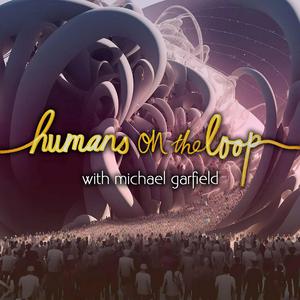
Uzyskaj bezpłatną aplikację radio.pl
- Stacje i podcasty do zakładek
- Strumieniuj przez Wi-Fi lub Bluetooth
- Obsługuje Carplay & Android Auto
- Jeszcze więcej funkcjonalności
Uzyskaj bezpłatną aplikację radio.pl
- Stacje i podcasty do zakładek
- Strumieniuj przez Wi-Fi lub Bluetooth
- Obsługuje Carplay & Android Auto
- Jeszcze więcej funkcjonalności


Humans On The Loop
Zeskanuj kod,
pobierz aplikację,
zacznij słuchać.
pobierz aplikację,
zacznij słuchać.

